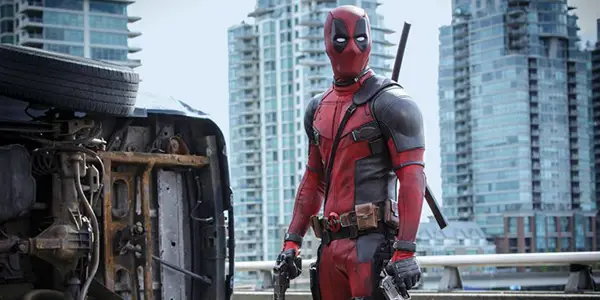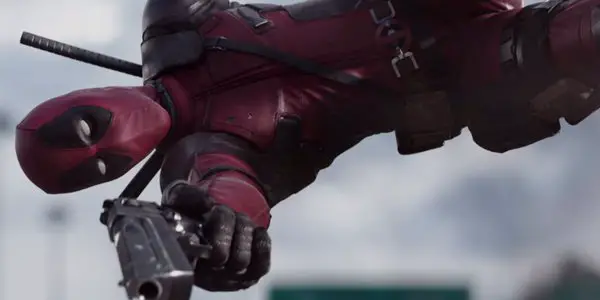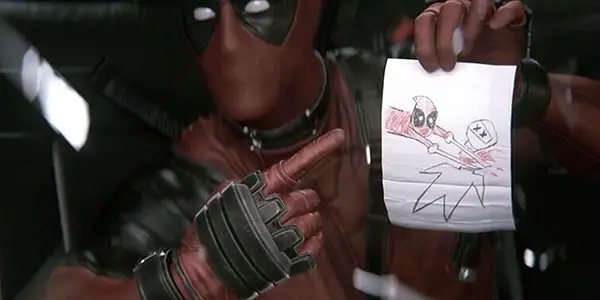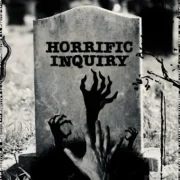DEADPOOL: Fan Service of the Highest Order

David is a film aficionado from Colchester, Connecticut. He enjoys…
Deadpool is a comic book character with an interesting history. Premiering in the early 1990s, he was originally created as a parody of comics in general, with both the DC character Deathstroke and Marvel’s Spider-Man influencing his name and appearance (Wade Wilson is Deadpool’s real name, while Slade Wilson is the civilian name of Deathstroke). Over the years, though, the character has gained an unusually strong following, even for those that are not typical comic book fans.
With the same goofiness and self-referential humor as a character like Spider-Man, but combined with the graphic violence most often seen in DC comics; perhaps Deadpool is just the perfect clash of contradictions.
With that in mind, the long-awaited Deadpool adaptation is everything fans wanted it to be. With Ryan Reynolds at the helm, it’s a wise-cracking, hyper-violent, completely ridiculous yet incredibly entertaining film. This may be fan service, yes, but it’s fan service of the highest order.
A Redemption
For those who saw 2008’s uninspired X-Men Origins: Wolverine, you know that this is not the first time that Deadpool has been brought to screen. Also played by Ryan Reynolds, that adaptation took itself way too seriously, completely missing the purpose of the character in the process. Deadpool is at once a redemption and a new origin story for the character (also partly thanks to X-Men: Days of Future Past rebooting the series).
Before becoming Deadpool, Wade Wilson works as a contract-for-hire, with people paying him to intimidate their enemies. Life is good, and even better with the beautiful Vanessa Carlysle (Morena Baccarin) by his side. It is soon interrupted, though, when Wade is diagnosed with terminal cancer. And in a last-minute attempt to save his life, he agrees to an experimental procedure that could cure his cancer in addition to granting him super powers.

To be expected, the experiment is run by bad guys named Ajax (Ed Skrein) and Angel Dust (Gina Carano), who run a super-X program in order to create superhumans that are basically slaves. Though the procedure does cure Wade and grant him healing powers, he is also left badly disfigured. So, in typical superhero fashion, he must take revenge on the people who turned him into a monster. Even with such a straightforward story, though, it is almost immediately relevant that this is a unique entry in the world of comic book movies.
“A Different Kind of Superhero Story”
What distinguishes Deadpool from nearly every other superhero movie is its absolute self-awareness. The character not only possesses an understanding that he is in a comic book movie (at times even talking directly to the camera), but the filmmakers are also clearly aware of the type of movie they are making. Writers Paul Wernick and Rhett Reese should be commended on their use of pop culture references alone; some particularly funny lines are about the X-Men world in which the film is based (characters Colossus and Negasonic Teenage Warhead are also in the film), as well as comments on additional superhero franchises and other popular movies.

Ryan Reynolds may also be the perfect selection for the character. I have always thought of Reynolds as a talented actor, who has unfortunately been wasted in the wrong types of movies. He has excelled in the past in films that utilized his usually spot-on comic timing and charm (Waiting and Van Wylder being perhaps the best examples). And in Deadpool, he is allowed to just let loose, with his entire dialogue basically being a string of sarcastic remarks, insults, pop-culture quips, and self-deprecating references to other films that he has starred in (Green Lantern, for example).
At times, the constant bombardment of jokes can be overwhelming. Coming in such rapid succession, you are likely to miss more than a few by the time the film has ended. Such an aspect, though, just adds to the absurdity of the experience, and may even make it so that future viewings are necessary.
Cartoonish Hyper-Violence
With its awareness of being a comic book movie and with a relatively light-hearted tone, the extreme violence of Deadpool may at first come as a shock. The only similar type of comic-book violence that I have seen in the past is in the Netflix Marvel shows Daredevil or Jessica Jones. Those shows are embellished with a dark, almost neo-noir tone, though, which would be unfitting in this film.
Thankfully, the violence in Daredevil is about as excessive as a Quentin Tarantino movie, with blood gushing, limbs being chopped off (complete with a reference to 127 Hours), and plenty more. Really, this is not a film to bring your kids to.

The violence is yet another sign that Deadpool is fan service, through and through. Before the film had been greenlit by Fox, a short scene was filmed and was then leaked to the public, showing Deadpool fighting some bad guys while driving in a van. With such a rave response to the footage, Fox immediately put the film into production, setting a release date for the following year.
With such a fast production from idea to screen, Deadpool does at times feel rushed. Director Tim Miller, who before had only worked on opening sequences in movies in the past, was perhaps too inexperienced to take on a full-length feature. Some of the action scenes, for example, needed a little work in editing, as at some angles you can clearly see the CGI. With the intention of producing a film as quickly as possible, but not spending as much time on the production itself, the film feels just a little more amateurish than it could have been otherwise.
Conclusion
The verdict is simple, though: Deadpool is a movie made for the fans. It’s a no-holds-barred, violent, and at times even surprisingly moving film, packed with just about as many humorous pop culture references that you could hope for.
Though the production itself could have used some work, it doesn’t really matter if you don’t pay too close attention to it. In addition, the role is one that was made for Ryan Reynolds’ unique brand of humor. Basically, if this is what fan service feels like, then you can definitely sign me up for the next one.
What are your thoughts about Deadpool? Do you think rated-R superhero movies will be more popular in the future?
Deadpool is opening in cinemas throughout the U.S. on February 12, 2016, and in U.K. theaters on February 10. For international release dates, check here.
Does content like this matter to you?
Become a Member and support film journalism. Unlock access to all of Film Inquiry`s great articles. Join a community of like-minded readers who are passionate about cinema - get access to our private members Network, give back to independent filmmakers, and more.
David is a film aficionado from Colchester, Connecticut. He enjoys writing, reading, analyzing, and of course, watching movies. His favorite genres are westerns, crime dramas, horror, and sci-fis. He also enjoys binge-watching TV shows on Netflix.













